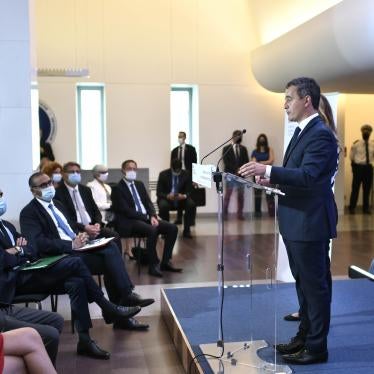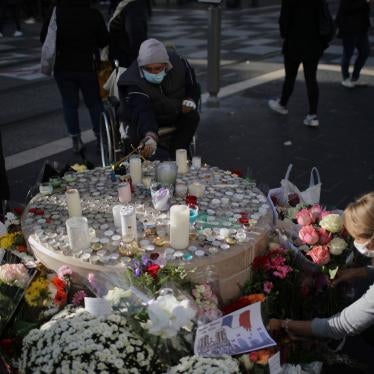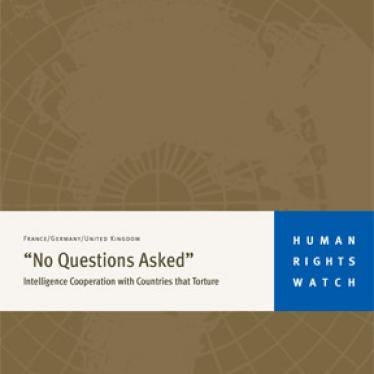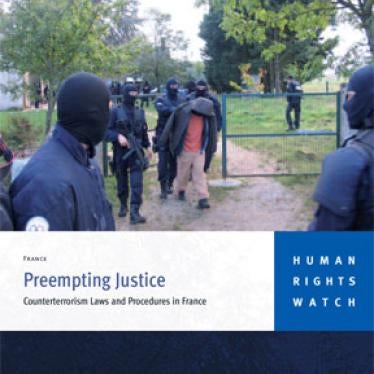France’s latest renewal of its emergency law has made few headlines abroad—except perhaps in Turkey, where President Recep Tayyip Erdogan, fresh from passing his own sweeping state of emergency, may have relished watching the champion of liberté, égalité, and fraternité once again suspend rights in the name of security.
But European countries, rattled by a new spate of deadly attacks in France and Germany, may yet be tempted to turn to the new French law as a model. This would be a serious misstep on both legal and strategic grounds.
France’s parliament on July 22 did not simply extend the state of emergency that President Francois Hollande declared in the wake of the horrific Paris attacks last November. Propelled by the despicable Bastille Day attack a week earlier in Nice, lawmakers significantly expanded emergency powers of police search, seizure and detention. They also used the emergency powers act to slip more than a dozen new draconian counterterrorism provisions into French criminal law. In contrast to the emergency measures, which lapse in six months, these changes to France’s criminal codes are permanent.
There is no justification, ever, for attacks such as those in Nice and Paris, which together killed 214 people and wounded hundreds, or for tragic, smaller attacks that followed in Normandy and southern Germany. Whether the attackers are members of organizations like the Islamic State, lone wolves who heed such groups’ murderous calls, armed neo-fascists, or violent extremists of any other ilk, the authorities have a duty to protect people from such atrocities.
But governments must also take care not to overreact. Taken together, France’s rolling state of emergency and the amendments to criminal codes mark a perilous shift away from judicial safeguards against security force abuses. While every new attack increases the allure of tough responses, the new measures represent a serious step backward for human rights and the rule of law, playing directly to armed Islamist groups’ desires to divide the world along the stark lines of Western oppressors vs. Muslim oppressed. They also set a dangerous precedent for other governments, whether closer to home in the United Kingdom, Belgium, and Turkey, or farther afield in Brazil, Malaysia, Australia and elsewhere.
The new, six-month extension of emergency powers creates France’s longest state of emergency since the Algerian War in the 1950s. The new law restores or extends previous emergency provisions, such as empowering police to carry out raids and local authorities to place suspects under house arrest without prior judicial approval. It also expands those powers, for example allowing the police to search luggage and vehicles without judicial warrants. In addition it reinstates warrantless seizures of computer and cellphone data that France’s highest legal authority had struck down as unconstitutional, adding a few restrictions that still fall short of judicial oversight.
In separate reports in February, Human Rights Watch and Amnesty International documented more than three dozen cases in which the use of these emergency powers violated universal rights to liberty, privacy, or freedoms of movement, association and expression. The two groups also found that the emergency acts lost suspects jobs, traumatized children, and damaged homes. The vast majority of those targeted were Muslims. Those interviewed said the actions left them feeling stigmatized and eroded their trust in the French authorities. The latest version of the emergency law risks compounding these effects.
International law allows governments to restrict certain rights during states of emergency but only “to the extent strictly required by the exigencies of the situation.” Governments must ensure that the measures are proportionate, and do not discriminate or stigmatize people of a particular ethnicity, religion, or social group.
In one of the most egregious amendments, the new emergency law adds an extra year tothe maximum period of pretrial detention for children as young as 16—from one to two years, to two to three, depending on the offense. International standards limit the detention of children to “a measure of last resort and for the shortest appropriate period of time.” The United Nations Children’s Rights Committee has previously concluded that France should reduce pretrial detention of children.
The new law also reduces the judiciary’s discretion on expulsions and entry bans for foreign nationals convicted of terrorism-related offenses. It triples the maximum duration of house arrest, from one month to three, for travelers returning from an area abroad where terrorist groups operate, but whom the authorities have insufficient evidence to charge. France’s internal security code already allowed the collection of cellphone data from people identified as linked to terror threats. The emergency law expands that provision to allow collection of cellphone data from the suspects’ family and friends.
French lawmakers who care about the rule of law should try to muster a majority to overhaul the criminal code amendments. In the meantime, parliament should scrutinize all the new measures to ensure they do not become instruments of broad repression, and to evaluate whether they are even effective.
Thus far the nearly 3,600 warrantless raids and 400 house arrests under the state of emergency have led to only six terrorism-related criminal investigations. On July 5, a French commission of inquiry faulted the intelligence service for widespread failures in analyzing information that might have prevented the Paris attacks, and concluded that the state of emergency had “limited impact” on improving security.
It’s unclear how simply piling on more regressive laws will prove more successful. What is clear is that these measures threaten to erode French democracy and further alienate Muslim communities. That’s exactly what groups like Islamic State want.









